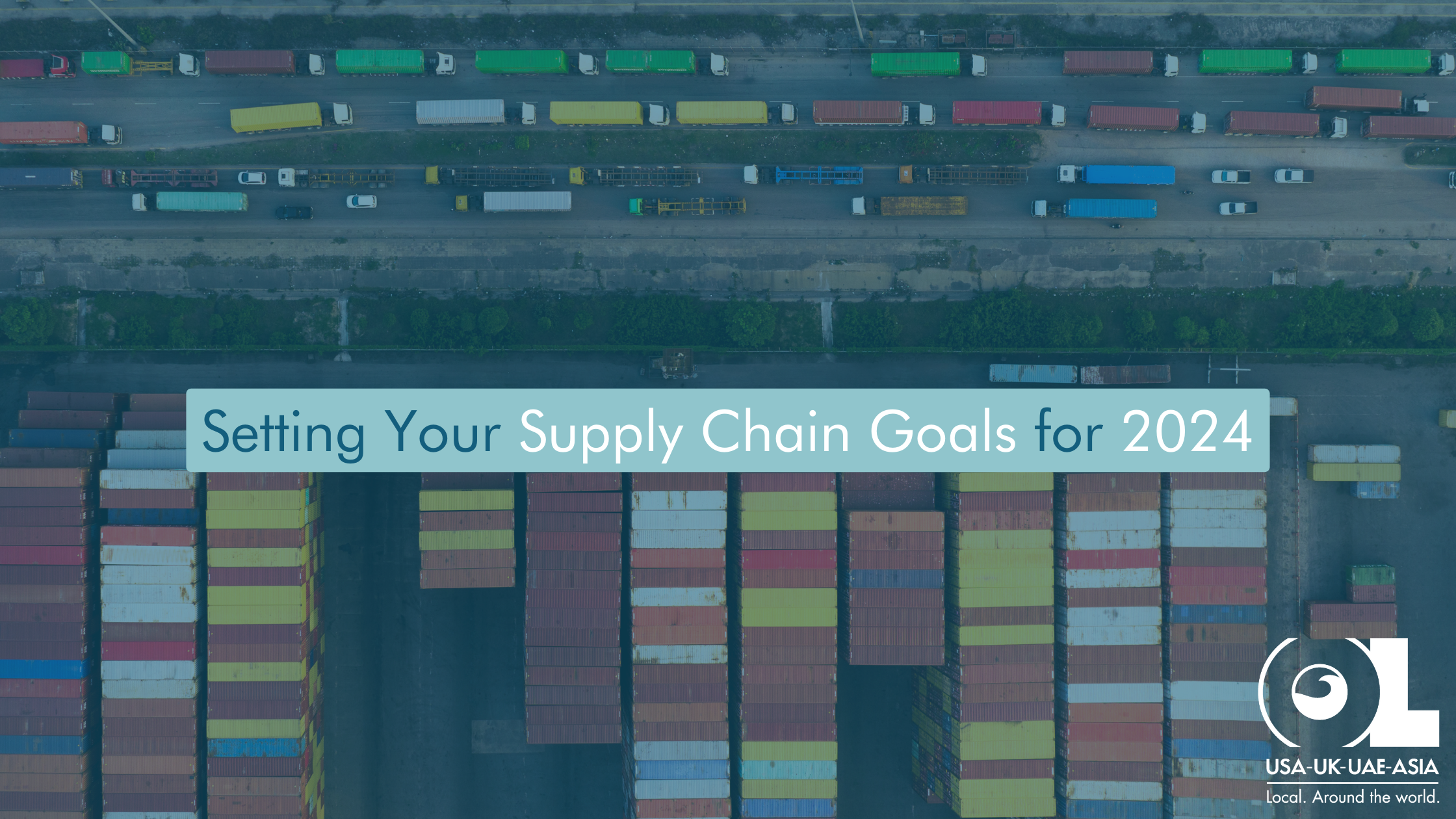Have you ever considered how the backbone of your business operations—your supply chain—could be the key to your success in 2024? As we embark on a new year, it’s crucial to reflect on the importance of effective supply chain management in this dynamic business world. This blog post is dedicated to guiding businesses in setting realistic and impactful supply chain goals for the year ahead. We’ll delve into the latest market trends, reflect on past performance, and chart a course for a successful, resilient, and innovative supply chain strategy.
Understanding the Current Supply Chain Landscape
The supply chain industry is continuously evolving, shaped by technological advancements, changing consumer behaviors, and global events. The rise of e-commerce, for instance, has revolutionized how goods are purchased and delivered, demanding more agility and efficiency from supply chains. Additionally, the adoption of AI and IoT technologies is transforming logistics operations, making them smarter and more predictive.
However, these advancements bring their own set of challenges. Businesses today face logistical hurdles, supply disruptions due to geopolitical events, and the ongoing pressure to manage costs while meeting increasing customer expectations. Understanding these trends and challenges is the first step in setting goals that are not just ambitious but also achievable.
Reflecting on Your Previous Supply Chain Performance
Before setting new goals, it’s essential to assess your previous year’s supply chain performance. Look at key metrics such as delivery times, inventory turnover rates, and customer satisfaction scores. What were the high points and low points? Perhaps your business excelled in fulfilling orders but struggled with inventory management. By identifying these areas, you can focus your efforts where they’re needed most.
Learning from past experiences, both successes and failures, is invaluable. Consider case studies from within or outside your industry for insights into effective supply chain management strategies.
Setting SMART Supply Chain Goals
SMART (Specific, Measurable, Achievable, Relevant, Time-bound) goals are vital in supply chain management. For example, rather than a vague goal like ‘improve delivery times,’ a SMART goal would be ‘reduce delivery times by 15% by the end of Q2 2024.’
When setting goals, consider areas like efficiency improvement, cost reduction, customer satisfaction enhancement, and sustainability initiatives. Each goal should align with your broader business objectives and be adaptable to changing market conditions.
Integrating Technology and Innovation
Incorporating new technologies such as AI, IoT, and blockchain can significantly transform your supply chain operations. For example, AI can optimize route planning for deliveries, while blockchain can enhance transparency and security in your supply chain. It’s not just about adopting new technologies but integrating them in ways that enhance your specific operations.
Maintaining an innovation mindset is crucial. This means being open to new ideas, continuously seeking improvements, and being willing to test and learn from new approaches. Innovations in supply chain management often lead to increased efficiency, reduced costs, and better customer experiences.
Building Resilience and Flexibility
One of the key lessons from recent years is the importance of a resilient supply chain. This involves strategies that allow your supply chain to withstand various disruptions—from natural disasters to political upheavals. This could mean diversifying suppliers, investing in predictive analytics to foresee potential disruptions, or building stronger relationships with key partners.
Flexibility is another critical aspect. The ability to quickly adapt to changing market conditions, customer demands, or supply issues is invaluable. This might involve flexible inventory management systems, agile logistics planning, or a workforce trained to handle various tasks.
Emphasizing Sustainability in Supply Chain Goals
As we move into 2024, sustainability is no longer just an optional corporate social responsibility initiative; it’s a critical component of a modern supply chain strategy. Consumers and businesses alike are increasingly aware of the environmental impact of their activities, including the supply chain processes.
Sustainability Goals:
- Eco-Friendly Practices: Set goals to reduce your carbon footprint, such as optimizing transportation routes for fuel efficiency, using eco-friendly packaging materials, or investing in renewable energy sources for your warehouses.
- Waste Reduction: Look at ways to minimize waste in your operations. This could involve more efficient inventory management to reduce overstocking, improving product design for longer lifecycles, or finding ways to repurpose or recycle materials.
- Supply Chain Transparency: Transparency is key to sustainability. Set goals around tracing the origin of your products and ensuring that all elements of your supply chain meet certain environmental and ethical standards.
Collaboration for Sustainability:
- Partner with Green Suppliers: Collaborate with suppliers who prioritize sustainability, thereby extending your environmental efforts across the supply chain.
- Educate and Involve Stakeholders: Use your influence to educate partners, employees, and customers about the importance of sustainability. Encourage them to join in your efforts for a more sustainable future.
Measuring Sustainability Impact:
- Sustainability Metrics: Just like financial or operational metrics, sustainability metrics are vital. Set specific targets for reducing emissions, waste, or energy consumption and regularly monitor your progress.
- Reporting and Compliance: Keep stakeholders informed about your sustainability efforts and achievements. Compliance with environmental regulations and standards should also be a key aspect of your sustainability goals.
By integrating sustainability into your supply chain goals, you’re not just contributing positively to the environment but also building a brand that resonates with the values of modern consumers and businesses. This approach can lead to long-term profitability and resilience, positioning your business as a forward-thinking leader in your industry.
In summary, setting strategic supply chain goals for 2024 is about understanding the current landscape, learning from the past, and proactively planning for the future. By setting SMART goals, embracing technology and innovation, and focusing on resilience and flexibility, your business can not only navigate the challenges ahead but also seize new opportunities.
As you apply these insights to your business strategy, remember that continuous improvement is key. If you need professional advice or services, don’t hesitate to seek them out. Looking forward, the future of supply chain management is bright for those who stay proactive and adaptable. Here’s to a successful, efficient, and innovative year in your supply chain endeavors!



